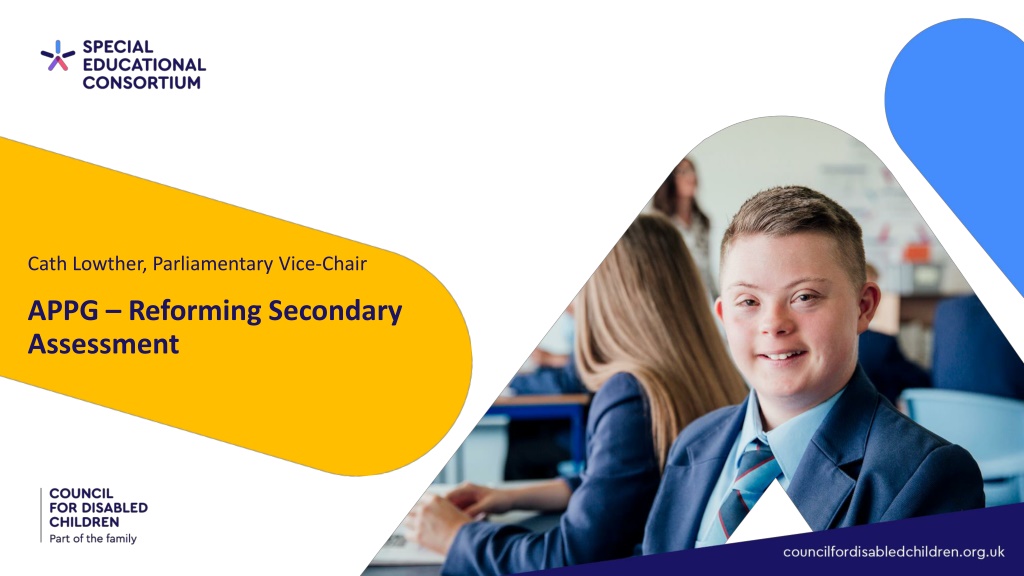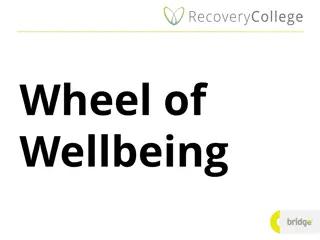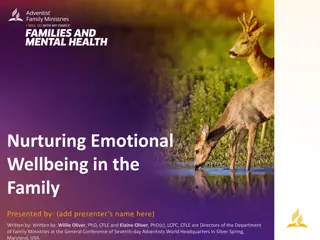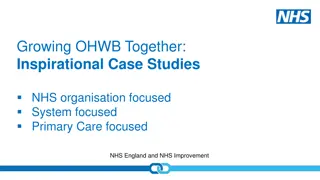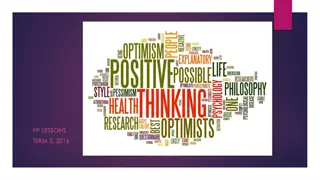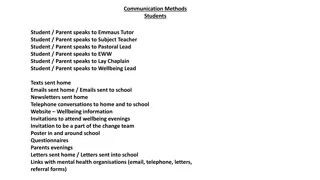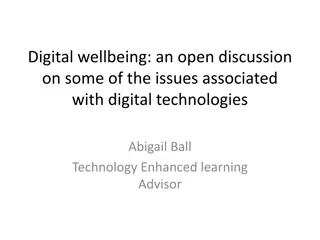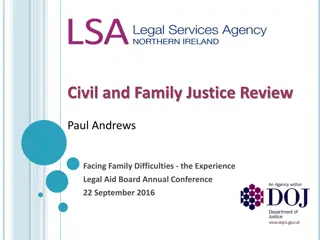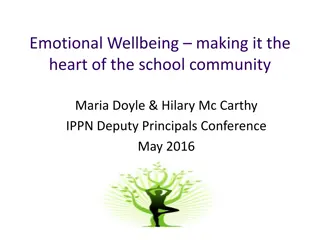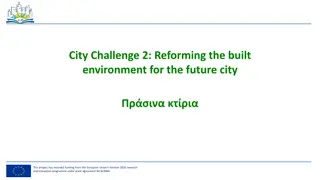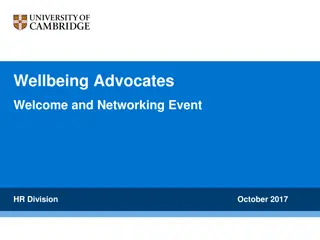Reforming Assessment for Enhanced Learning and Wellbeing
In advocating for reforms in assessments, focus is placed on making reasonable adjustments, ensuring purposeful qualifications that boost confidence, fostering flexibility in age-appropriate assessments, and promoting meaningful learning experiences. Research highlights the detrimental impact of performance pressure and exams on mental health, emphasizing the need for a shift towards engaging, self-directed learning approaches rooted in psychology theories like Self-Determination Theory and Mastery for optimal human development.
Download Presentation

Please find below an Image/Link to download the presentation.
The content on the website is provided AS IS for your information and personal use only. It may not be sold, licensed, or shared on other websites without obtaining consent from the author.If you encounter any issues during the download, it is possible that the publisher has removed the file from their server.
You are allowed to download the files provided on this website for personal or commercial use, subject to the condition that they are used lawfully. All files are the property of their respective owners.
The content on the website is provided AS IS for your information and personal use only. It may not be sold, licensed, or shared on other websites without obtaining consent from the author.
E N D
Presentation Transcript
Cath Lowther, Parliamentary Vice-Chair APPG Reforming Secondary Assessment
About SEC 40 members of the Special Educational Consortium. Protect and promote the rights of disabled children and young people and those with SEN. Identifies areas of consensus and works with the Department for Education, members of Parliament and other decision-makers. Respond to and make proposals for changes in policy, legislation, regulations and guidance that may affect disabled children and young people and those with SEN. ncb.org.uk
Reforming assessment consensus positions At the most basic level, reasonable adjustments should be made in accordance with the Equality Act for assessments Qualifications should be purposeful, not always focused on progression into further education or employment, but to build confidence and self-esteem Flexibility in assessing at different age levels e.g. children with SEN may need more time in education and training
Research Square Peg (2023) found almost 75% of c.2k families reported performance-related pressure and exams negatively impacted their child's mental health, which in turn resulted in barriers to school attendance. Ditch the Label (2020) identified 59% of young people surveyed said school related performance pressure impacted their mental health, and 49% said exams did too. Mind's survey the same year cited similar reduced outcomes directly correlated to exams or performance pressure. Edge Foundation's report, 'Schools for All? (2023) identified nearly half of 15 16 year olds in England not viewing school as meaningful or enjoyable. Limited choice in subjects added to feelings of stress. Their mental health was impacted by the focus on exams and academic attainment. There is evidence that assessment should be more informed by neuroscience, e.g. Sarah Jane Blakemore's research around adolescent neurodevelopment.
Psychology Motivation: People are innately curious, interested creatures who possess a natural love of learning and who desire to internalise the knowledge, customs and values that surround them (Niemic and Ryan, 2009, p. 133). Self Determination Theory (Ryan and Deci) says that autonomy, relatedness and competence are essential for optimal human development and wellbeing. Meaning: When an individual is able to find ways of self-expression through satisfaction of autonomy and competence, and self-transcendence through satisfaction of relatedness and beneficence, then that life should be filled with meaning and truly a life worth living (Martela, Ryan and Steger, 2018, p. 1280). To maintain high levels of engagement, and to boost overall wellbeing and resilience, learning needs to be meaningful to the individual concerned. Mastery: Self-efficacy affects whether individuals think in self-enhancing or self-debilitating ways, how well they motivate themselves and persevere in the face of difficulties, the quality of their emotional well-being and their vulnerability to stress and depression (Bandura and Locke, 2003, p. 87).
Young persons perspective Met with a young person who had just completed his GCSEs, he has SEMH needs and requires reasonable adjustments to be made. Feels he slipped through the cracks , and was set up to fail . Explained GCSEs are about knowledge recall, which can disadvantage those who struggle with memorisation. Skills for GCSEs not a fair reflection of his strengths e.g. advocacy work. Resits are a taboo subject. Core subjects weren t useful for his career trajectory, found young people groups and discussions much more valuable.
Young persons perspective Met with an Autistic young person as part of the EHCP process (year 11). His career ambitions did not match the subjects available to him at GCSE. He was unlikely to achieve to his potential due to missed schooling as a result of emotionally based school non-attendance. His commentary on schooling and assessment related to lack of flexibility and choice he could not choose what he wanted to learn and felt this impeded his opportunity to succeed.
